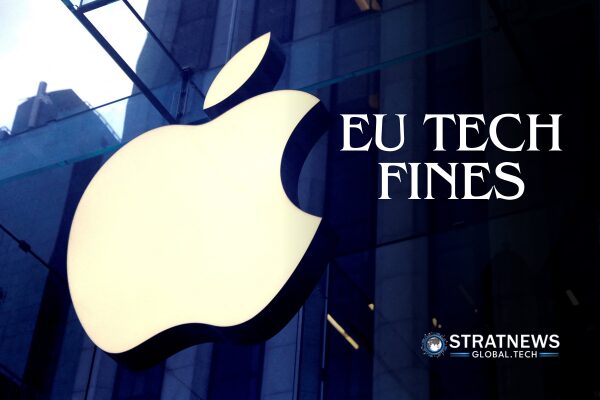EU Fines Apple and Meta Under Landmark Tech Law
EU fines Apple and Meta, the European Union has fined Apple €500 million ($570 million) and Meta €200 million as part of its first enforcement of the new Digital Markets Act (DMA). These penalties come after a year-long investigation into whether major tech firms comply with the new regulation aimed at increasing competition and limiting the dominance of Big Tech.
Major Blow to Big Tech’s Business Models
The European Commission, the EU’s executive body, concluded that both Apple and Meta breached the DMA, which was introduced to give smaller tech firms a fairer chance in digital markets. The legislation sets specific obligations for designated “gatekeepers” like Apple and Meta, and is designed to curb their market power.
Apple is accused of preventing app developers from directing users to more affordable options outside of its App Store. The Commission ordered the company to remove restrictions that limit developers’ ability to offer alternative purchasing options.
Meta’s penalty stems from its pay-or-consent model for Facebook and Instagram, which was launched in November 2023. Under this model, users can either agree to ad tracking in exchange for free access, or opt to pay for an ad-free experience. The Commission found this approach to be in violation of the DMA, calling it a breach of user rights.
Apple and Meta Push Back
Both companies issued strong responses. Apple said it would challenge the fine, arguing the ruling forces them to “give away our technology for free,” and claimed it undermines user privacy and product security.
Meta also criticised the Commission’s actions. The company said the EU is unfairly targeting successful US firms while allowing different standards for European and Chinese competitors. Meta further stated that the imposed changes equate to a “multi-billion-dollar tariff” and will force them to deliver an “inferior service.”
Compliance Timeline and Further Investigations
The EU has given both companies two months to comply with the new orders or face further fines. Apple, however, avoided a penalty in a separate case concerning browser choices on iPhones, after making recent changes that satisfied the DMA’s requirements.
Nevertheless, the EU found Apple still in breach for discouraging sideloading—the practice of downloading apps from sources other than the App Store. Regulators criticised the company’s terms for alternative app distribution, particularly a newly introduced “Core Technology Fee.”
Meanwhile, Meta’s Marketplace service was removed from the DMA gatekeeper list after its user numbers fell below the regulatory threshold.
A Turning Point in Global Tech Regulation
The EU emphasised that its decisions are based on “clear and predictable rules.” The fines highlight Europe’s firm stance on reining in dominant tech firms and ensuring fair competition in digital markets. However, the move could increase tensions with the US, where previous threats of retaliatory tariffs have surfaced in response to European regulations.
with inputs from Reuters


